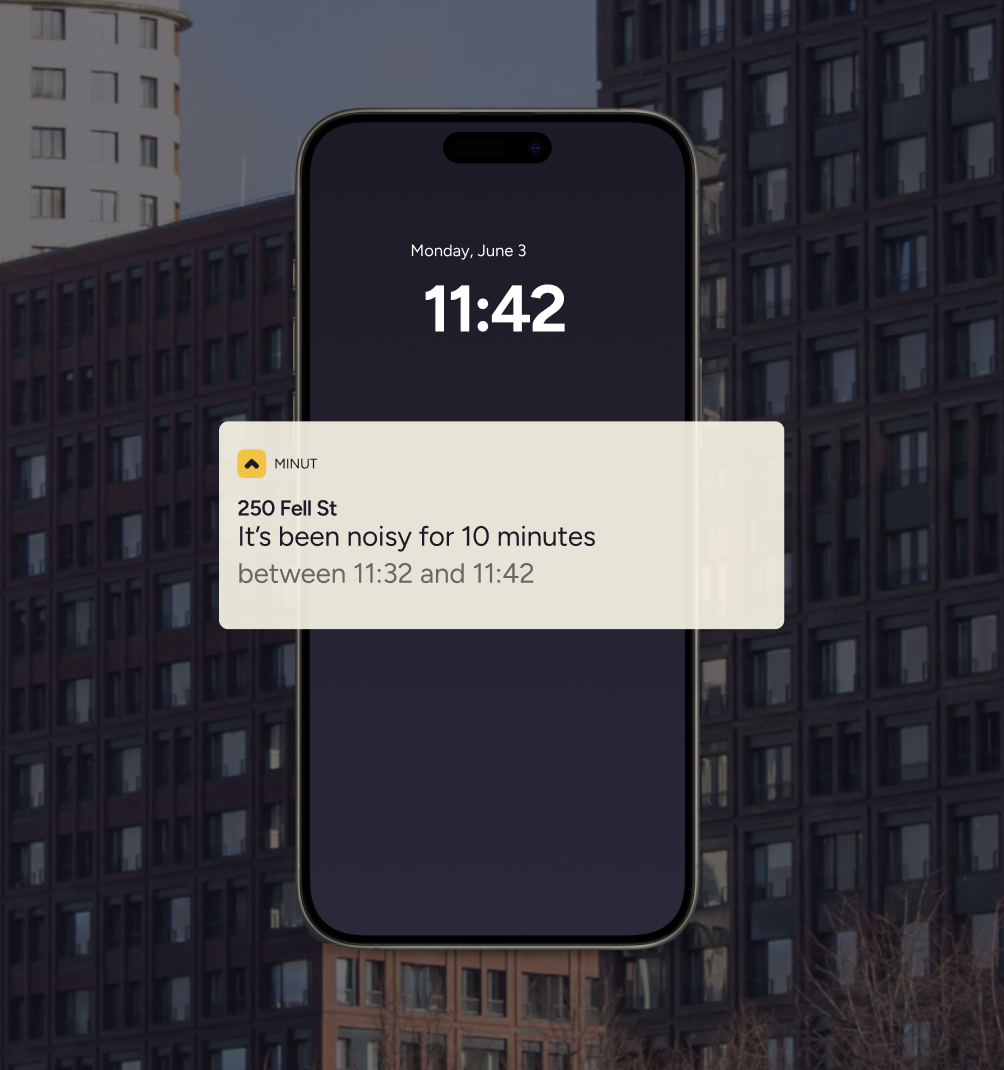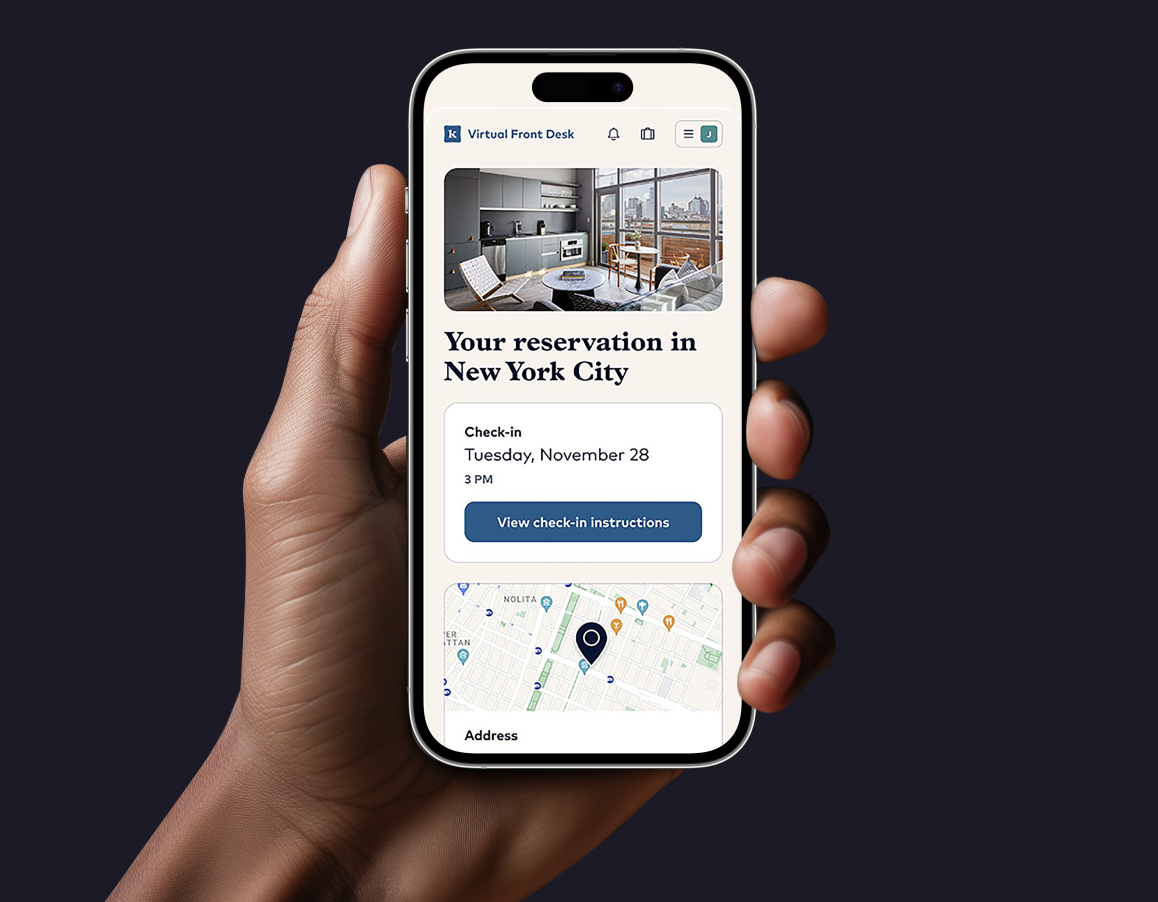


Raise your hand if you got into real estate because you wanted to spend your days buried in admin…
We didn’t think so.
But that’s exactly where the industry has landed—endless emails, repetitive guest messages, noise complaints, maintenance backlogs, and payment follow-ups. These tasks eat into your day, drain your energy, and make it hard to focus on what actually grows your business.
Real estate automation changes that.
By streamlining the repetitive work that clogs your operations, automation helps you save time, improve efficiency, and stay competitive, whether you're managing long-term rentals, short-term stays, or mixed portfolios. In fact, 84% of property managers say they save valuable time by using technology to manage their operations.
In this guide, you'll learn how to implement real estate automation that delivers results. We’ll cover the workflows you can automate today, the tools that make it easy, and share how to get started without disrupting your current operations.
Real estate automation uses technology to handle repetitive property management tasks with minimal manual input. Contrary to popular belief, it’s not about replacing human decision-making; it’s about reducing inefficiencies that slow down your operations and increase costs.
This approach applies across rental types:
Automating real estate workflows is now expected across the board, from the C-suite, to property owners, and even tech-savvy guests and tenants.
The fastest way to see results from real estate automation is to target the tasks that eat the most time. These workflows are repeatable, measurable, and easy to hand off to automation tools.
Manual messaging is a drain, especially for short-term rentals. Automating guest messages helps you stay professional and responsive at every step.
Automate:
Staying ahead of what’s happening inside your properties is essential, but no one has time to watch dashboards all day. Smart automation lets you set alerts and take action automatically.
Automate:
Tools that help: Minut

Small issues become big problems when requests fall through the cracks. Automating maintenance tracking keeps your properties running smoothly.
Automate:
Chasing late rent is inefficient and often awkward. Automated reminders improve collection rates and reduce missed payments.
Automate:
Online reviews directly impact occupancy and revenue. Automation helps you capture more reviews without added work.
Automate:
Real estate automation already delivers measurable gains across portfolios of all sizes, from small-scale operators to international hotel brands.
Kasa Living manages over 2,000 short-term rental units across the United States, including apartments, hotels, and homes. With a tech-forward model and limited on-site staff, Kasa needed a scalable way to maintain trust, safety, and operational efficiency across a complex property mix.
The team invested in Minut to automate workflows in two key areas:
Minut's centralized noise monitoring and guest behavior insights helped Kasa eliminate friction between long-term residents and short-term guests, while reducing on-site staff dependency in fully transient properties.
“Minut gives our remote team an important line of sight into what’s happening inside a unit without requiring on-site interaction or intervention.”
— Drew Millum, Kasa

Not all automation platforms are created equal. The right tools should simplify your workflow, integrate seamlessly with your tech stack, and scale with your portfolio.
1. Integration with your PMS and channel manager
A good tool should plug into the systems you already use, and integrate easily. This will ensure data flows automatically between bookings, communication, and monitoring.
2. Real-time alerts and smart triggers
You need automation that acts. Look for tools that offer customizable rules for things like noise levels, occupancy detection, or missed check-outs.
3. Centralized management
Whether you manage five properties or 500, centralized dashboards help you track activity, respond faster, and maintain visibility without logging into multiple platforms.
4. Built-in compliance features
If you operate in regulated markets, automation should help with guest verification, noise control, and reporting—not add complexity.
5. Minimal setup and no heavy hardware
Installation should be fast. Devices should work without Wi-Fi where possible, and mobile apps should give your team remote access and insights instantly.
You don’t need to overhaul your entire operation to see results. The most effective automation strategies start small and scale quickly once the value is clear.
1. Identify your time drains
List the top five tasks your team repeats every day or week. These are prime candidates for automation.
2. Map those tasks to automation opportunities
Use this article’s workflow examples as a guide. Start with areas like communication, noise monitoring, or maintenance coordination.
3. Choose tools that solve real problems
Look for platforms with proven results, real integrations, and transparent pricing. Minut is a strong starting point for smart monitoring and guest-related automation.
4. Test automation on a small number of properties
Pilot the solution. Track time saved, issue resolution speed, and guest satisfaction. This helps build a case for wider rollout.
5. Scale with confidence
Once you have proof of value, roll out automation across your portfolio. Standardize processes, train your team, and monitor performance weekly.
If you track metrics from the off, you can make sure you’re on target and that your automation is helping, rather than hindering the team.
Metrics could include:
The future of property management is automated, and it’s already delivering results.
From reducing time spent on manual tasks to improving guest satisfaction and regulatory compliance, real estate automation is vital to keep up in 2025.
By identifying your most repetitive workflows, choosing the right tools, and tracking performance, you can build an operation that’s smarter, faster, and more efficient.
Minut is already helping operators like Kasa automate at scale and boost property management efficiency across thousands of units.
Now it’s your turn. Find out how Minut can help you get started with automation that works for your properties, your team, and your guests or residents..
